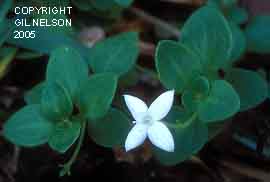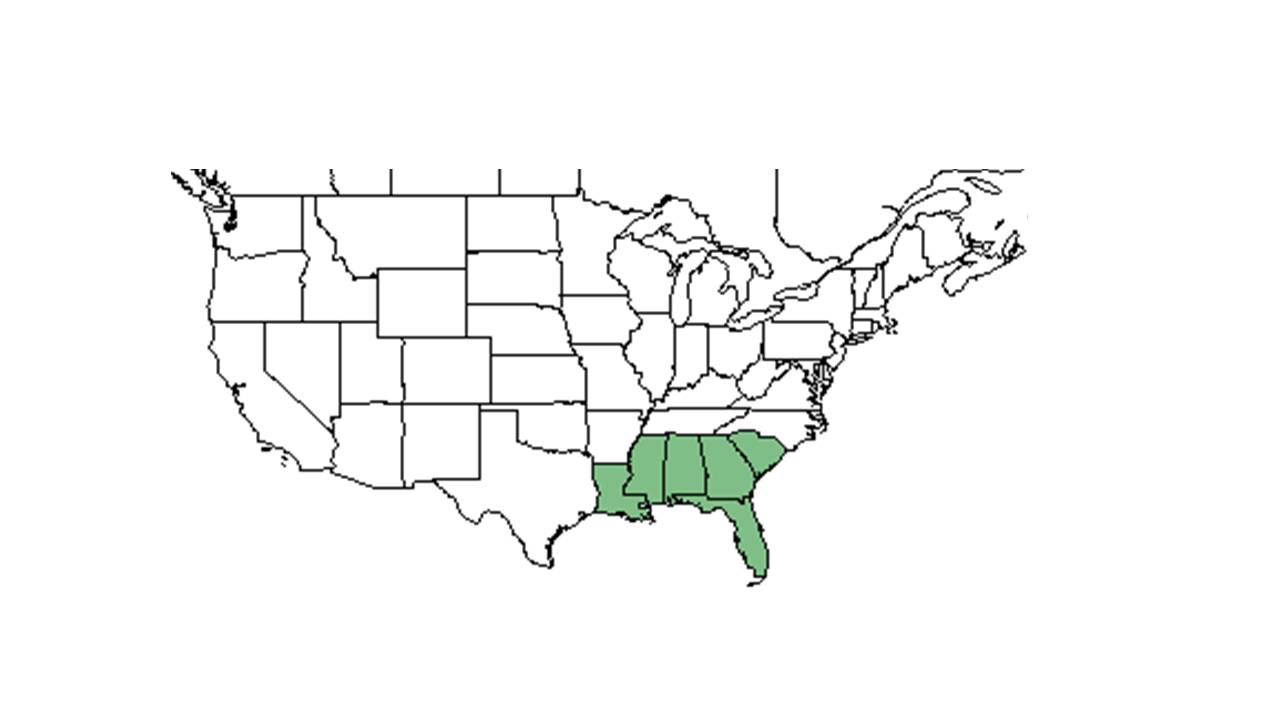Difference between revisions of "Houstonia procumbens"
KatieMccoy (talk | contribs) |
|||
| Line 15: | Line 15: | ||
| binomial_authority = (Walter ex J.F. Gmel.) Standl. | | binomial_authority = (Walter ex J.F. Gmel.) Standl. | ||
| range_map = HOUS_PROC_dist.jpg | | range_map = HOUS_PROC_dist.jpg | ||
| − | | range_map_caption = Natural range of ''Houstonia procumbens'' from USDA NRCS [http:// | + | | range_map_caption = Natural range of ''Houstonia procumbens'' from USDA NRCS [http://plants.usda.gov/core/profile?symbol=HOPR Plants Database]. |
}} | }} | ||
Revision as of 12:36, 16 October 2015
| Houstonia procumbens | |
|---|---|

| |
| Photo was taken by Gil Nelson | |
| Scientific classification | |
| Kingdom: | Plantae |
| Division: | Magnoliophyta - Flowering plants |
| Class: | Magnoliopsida – Dicotyledons |
| Order: | Rubiales |
| Family: | Rubiaceae |
| Genus: | Houstonia |
| Species: | H. procumbens |
| Binomial name | |
| Houstonia procumbens (Walter ex J.F. Gmel.) Standl. | |

| |
| Natural range of Houstonia procumbens from USDA NRCS Plants Database. | |
Common name: roundleaf bluet
Contents
Taxonomic notes
Description
Houstonia procumbens is a perennial herbaceous species with a procumbent, spreading growth habit and small white flowers (FSU Herbarium).
Distribution
Ecology
Habitat
H. procumbens occurs in moist to dry sandy or loamy soils, or in loose sand (FSU Herbarium). It can be found in light conditions from partial shade to full sun (FSU Herbarium). Native habitat it can be found in includes longleaf pine-scrub oak-wiregrass sand ridges, mixed hardwood woodlands, open slash pine stands, sand dunes, turkey oak scrub, and on stream banks (FSU Herbarium). However, it can also occur in disturbed habitat such as roadsides, parking areas, cutover pinewoods, mowed lawns, bulldozed slash pine savannas, open pastures, and along trails (FSU Herbarium).
Phenology
This species has been observed flowering in January through May, July, and October (FSU Herbarium). Fruiting has been observed in February through May, October, and November (FSU Herbarium).
Seed dispersal
Seed bank and germination
Fire ecology
This species has been found in habitat that is often maintained by occasional fire (FSU Herbarium).
Pollination
Use by animals
Diseases and parasites
Conservation and Management
Cultivation and restoration
Photo Gallery
References and notes
Florida State University Robert K. Godfrey Herbarium database. URL: http://herbarium.bio.fsu.edu. Last accessed: June 2014. Collectors: Harry E. Ahles, Loran C. Anderson, George R. Cooley, Delzie Demaree, Patricia Elliott, Suellen Folensbee, J. P. Gillespie, Robert K. Godfrey, Gary R. Knight, R. Komarek, R. Kral, Sidney McDaniel, R. S. Mitchell, Joseph Monachino, R. A. Norris, Kevin Oakes, Elmer C. Prichard, Gwynn W. Ramsey, W. D. Reese, Paul O. Schallert, John W. Thieret, L. B. Trott, and Jean W. Wooten. States and Counties: Florida: Bay, Brevard, Citrus, Franklin, Gadsden, Jackson, Jefferson, Lafayette, Leon, Levy, Liberty, Polk, Sarasota, Seminole, Suwannee, Volusia, Wakulla, Walton, and Washington. Georgia: Grady and Thomas. Louisiana: Washington. South Carolina: Colleton.